Ever since the first Women in Haunting Panel at HAuNTcon, a movement has been building to acknowledge women in the haunt industry. Now finally, we have an industry book telling their stories. Not Afraid To Slay: Women of the Haunt Industry, is a new book by Jan Knuth and Candi S. Cross.
Jan joined Philip Hernandez of the Haunted Attraction Network to discuss what she learned while writing this book and how it can help you engage your community and sell more tickets.
Listen Now:
Watch Now:
The Decision to Write a Book
My name is Jan Knuth, and I own and operate a haunted house in Holdrege, Nebraska called Gray House Haunts. In 2020, I wasn’t able to open, just because of our physical limitations we had, and on a whim, I decided to contact Candi Cross and write a book.
When Candi and I spoke she really wanted to write a book just about me and my haunt, and I was not overly comfortable with that. I had met, mostly through Facebook, a lot of amazing haunters, and – whether vendors, actors, or whatever – I don’t think they’re getting the recognition they deserve.
So she and I had a long conversation – “what does that look like? How do we proceed?” And I made it plain to her, I don’t want this to be like, “yay women, we hate men”, because that is not it at all. It’s more just giving women, in some way, a bigger platform.
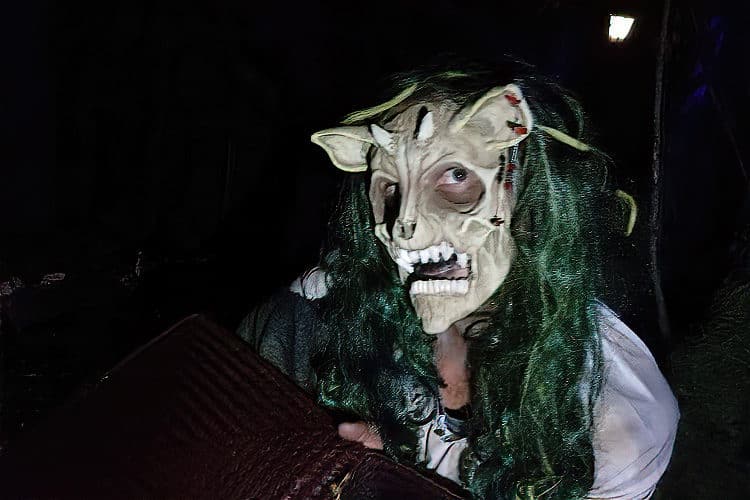
Stereotypes & Learned Responses
One of the things that I see frequently on Facebook, usually around this time of year, is “haunt widow” memes. The implication is always that the man is off to build the haunt and the poor little woman is sitting at home. What we’re finding more and more, is that’s just not the case. There are more women builders, scenic designers, managers, owners, etc. I think sometimes we just put ourselves in the background and sometimes we’re put in the background. It’s both ways.
I did a live YouTube interview, and we were talking a little about the book, but we were talking a lot about just my experience in haunting and how I got started. We were just chatting and having fun, I couldn’t see the comments – which is fine, I don’t need to. But when we got all done, one of the hosts said, “I was trying to delete those comments before you guys saw them”. And I’m like, “what comments?” And he said, “oh, there was a guy on there saying you women should go home and have babies.”
I kind of wished I’d known at the time he’d said it, just for the fact that it’s like, “dude, you made my point. You just made my point that women need to be in the forefront a little more – not instead of men, but with men”.
It’s kind of like the old thing where someone says, “I went to the doctor,” and you say, “what did he say?” It’s a learned response.
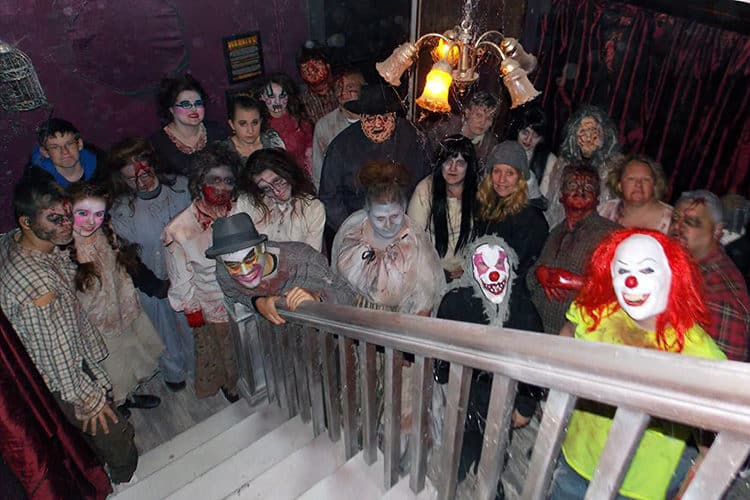
An Unexpected Range of Experiences
The main thing I took away [from the interviews] was – if we’re talking about just the women’s experiences – I had women in the interviews [with experiences] from “I’ve been so discriminated against; it’s just shameful”, to “I’ve never been discriminated against”. And it stunned me. I fall somewhere in the middle; I think I’m probably average. Yes, I’ve experienced the cold shoulder, or the wall going up – that kind of thing. But I don’t feel victimized either. Just that’s such a broad range, and I’m not sure the meaning of that. I don’t do social work or social research, but I just found it interesting that there were women that said, “That’s never happened to me”, and yet there’s others that were like, “You wouldn’t believe the stuff that’s happened to me”.
I don’t know. I wonder sometimes if it’s not being recognized, or some people are supremely confident – they’re born that way, they just function that way, and they just don’t care what you have to say. So, they just float along in their little atmosphere and disregard that you may have been discriminating against them or insulting them or whatever. So, it was odd.
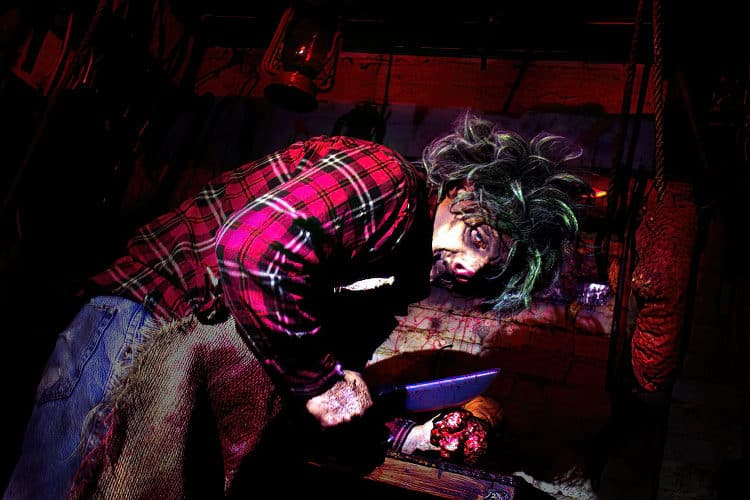
Discussion Boards Felt Like Walking Into the Men’s Locker Room
I still remember when discussion boards were big, and I got on there. There was one other woman on there, and I felt like I’d walked into a men’s locker room. I really did. And it was intimidating. That was 14 years ago, and I am much more confident now, I just kick the door down and go, “here I am!”
But then, I was a newbie and so I wasn’t overly confident. I felt that I was treated differently. I was actually ignored – that’s what it was. I was completely ignored, and I referred to myself as the “thread killer” because the second I would comment on a thread, it would die. It would just stop. That’s when I realized that – again this is 2014 – and even in this seven years (that’s when I went commercial or pro whatever you would call it), there has been some evolution. There’s been some change, but it definitely felt discriminatory.
It felt sexist.
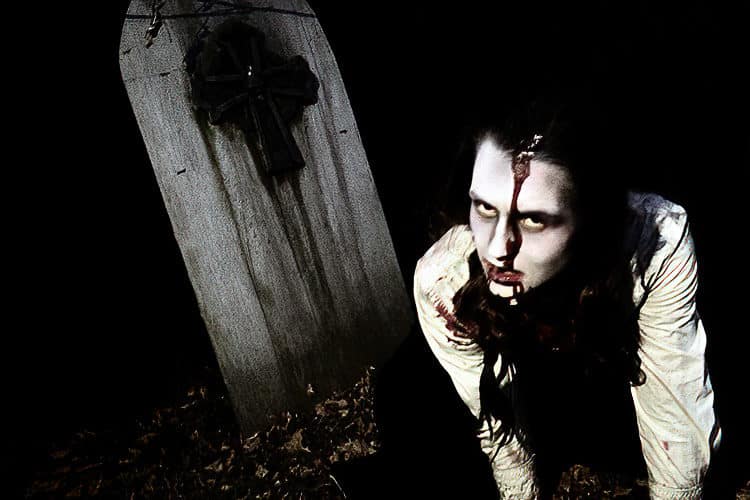
The Importance of Showing Women Haunters
One of the reasons I wanted to highlight women – whether they own a vendor business, or they own a haunt, or they’re in a successful acting troop – is because it’s entrepreneurial. It’s women that are entrepreneurs, and we need to see ourselves that way in order for younger women coming up to achieve those things.
I casually said to my niece a year or two ago, “Oh, I really wished I’d been a cop.” And she said “Why didn’t you?” I said, “Because in rural Nebraska in 1983, there weren’t female cops.” I had nothing to tell me that was okay or that was a possibility for me. Because I didn’t live in California, and I didn’t know Charlie’s Angels. And so, that wasn’t realistic for me. I could see this light bulb go off in her head, that if we don’t see it, we don’t think we can achieve it. Are people at fault? Yes. But also, we’re not, we had to just keep making progress. Keep going down that path, and eventually we’ll get there. But I don’t think there’s an end point, I think we can always improve.
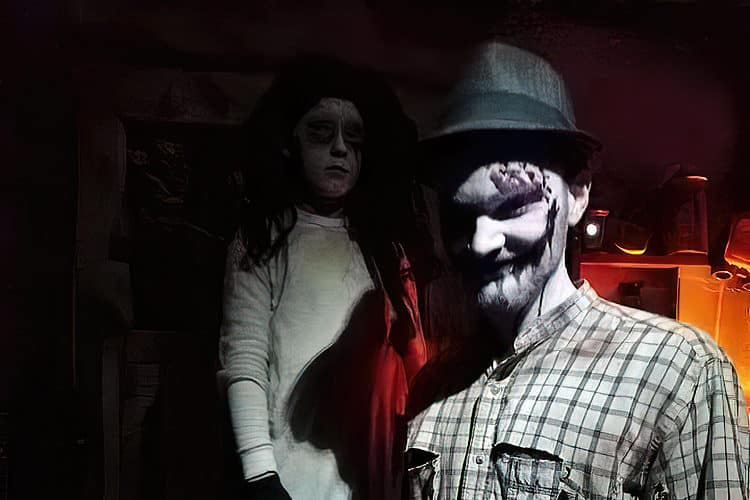
Showcasing Diversity
One of the things I also wanted to do was to not only bring in white women. I wanted to find women of other races to bring in and hear their story, their experience. Not only to represent them, but to also see how their experiences might differ from mine, or from other women that I talked to.
I literally didn’t know any women from other races that are in haunting. Now, keep in mind, I’m in rural Nebraska, everybody looks like me except certain pockets in the area. So, I actually reached out to a friend and I said, “Please take this in the best way, but I need to find some women in haunting that are not white – that don’t look like me, or sound like me, or grew up like me. Because, I can’t say I’m representing women if I don’t represent them.”
I found two. Both consented to be interviewed but only one responded when I sent the request. She’s an amazing young woman. Her name is Casey Cole, and she does a lot of acting. She was really honest and bold. And yes, her experience has been different – which I think we can all understand – and it’s because she’s a black American, and a female. Everything for her is a little elevated and she’s a haunter. You add all of those things together and I think she has almost a whole chapter in the book, honestly.
It was very important to me to have at least an awareness of diversity. I did only get to hit it in just little pockets. I had one actress that was a member of a minority, I had one male interviewee who happens to be a gay man. I tried, but it was a rabbit hole. It was, “How far do I want to go with this? Do I want to become adversarial? Or do I want to pretend these things don’t happen?” I really tried to land somewhere in between. I don’t want to alienate people, because that’s not how we get change. But I can present it to somebody and say, “This is what happened to this actress, and that’s not okay, but this is still a wonderful community and industry to be involved in. We just have some faults, just like any other community or industry.”
I think that the awareness of the lack of diversity, is really small. I think most of us don’t pay attention to it. And again, I think highlighting actresses, owners, whether they’re male or female, but of other ethnicities, is beneficial to all of us. We always talk about how we can’t staff our haunts, let’s open up these communities and show them, they can belong here too. Haunters don’t have to be just white people.
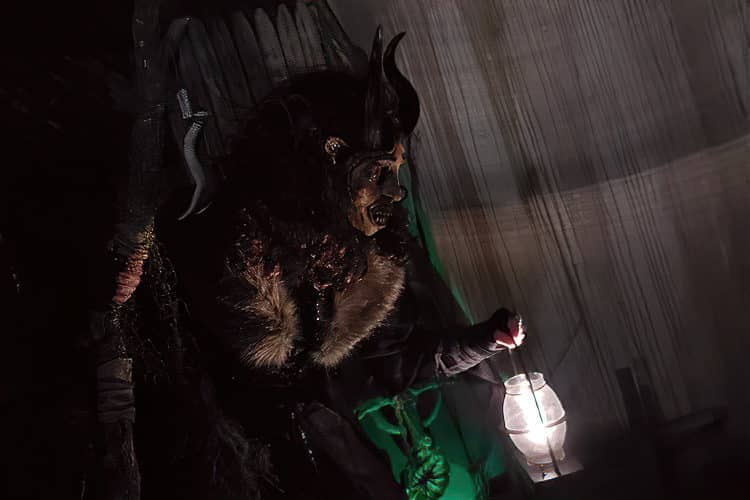
Being Mindful of Diverse Communities in Your Marketing
I’m going to call myself out here publicly. There is a community about 45 minutes from where I am, and I have to go outside my geography – I’m in a small town – to pull in [customers]. It’s probably about half white and half Latin American community, largely Spanish speaking. I thought I’d take posters over there and target them on Facebook. So my sister and I took these great posters over and we hung them up all over town.
Then as I’m doing this book and I’m talking to people about diversity and reaching out into different little pockets of society, it was like a bell went off in my head. I hung posters in a Spanish speaking community written in English, only English. It never even occurred to me to maybe have a dual poster, maybe a column of English and a column with Spanish, or two posters. I have to admit, I just felt stupid – because that’s really poor marketing. So, from a business perspective, that’s stupid. From a human aspect, it was embarrassing.
Now I did have someone say the young people over there know how to read English. They probably do, but I also want to get their aunt who will tell them, “Oh, you should go to this place,”
and I want to get their grandma who’s always looking for fun things for them to do. So, those people might not be able to read English. Even if they can speak it, they might not be able to read it. I think we have to become more aware as marketers, but also as human beings. If I were in that grandmother’s shoes and I saw a business, whether I could read English or not, that put it in Spanish as well, I would appreciate it, and I’d be more likely to tell people,
“Hey, you should go check that place out – and Holdrege, because apparently we’re welcomed there.”
I know my intention was never to insult or offend or be racist in any way, but that’s how we can be subtly offensive, and so you have to check yourself sometimes and go, “Okay, why did I do it that way?” Or, “What was that thought, that just popped through my head?”
The welcoming part is vital. Last year, for the first time – now this is a completely different community – but I did a 10% military discount. I spoke to a gentleman who’d done a little bit of work with me on a video, and he happened to be a veteran and he said, most veterans won’t use the discount. He said, what it does do is it tells them you respect them, and they’re more likely to come. So again, it’s that welcoming message. Whether it’s safety, or we won’t discriminate against you, whatever it is that they feel that they can come to your business and participate.
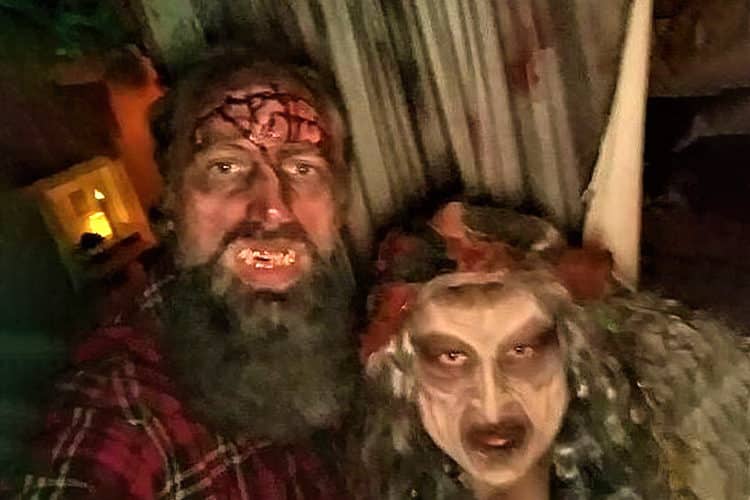
Embracing Diversity Within Your Cast & Crew
When I first started Gray House it was interesting, because I have the same core cast, but they’ve changed personally, so dramatically. Several of them have come out in this time, one completely changed her dressing aesthetic – not her pronouns – but she went from quite feminine to quite masculine.
I think, watching them, and watching how they evolve, helps me be more aware, helps me realize that we’re not cookie cutters. The one actor I have who, the first year I worked with her was very feminine. The next year she came back and it was like she was a completely different person, but she was comfortable and she was happy. I had people in my cast ask me, “Is she transgender or is she a lesbian?” Basically, “what is she?” is what I felt was being said, and I told them, “I don’t know. If you want to know, you should ask her, and all we really should worry about is that we’re respecting her choice to be whoever she is or who she wants to be.”
The only thing I asked her was, “Would you prefer that I dress you as a female character, or a male character?” Because, I don’t care, but I want to know upfront. I don’t want to put her in a dress and have her uncomfortable all season. She told me, “Yeah, I would prefer to play a more male character.” Great. That’s all I need to know; the rest is none of my business.
One of the things I really like about some of the experiences I’ve had is that I have people that are extremely conservative – you could even say homophobic – but then what they have discovered is it’s really hard to hate somebody you’re sitting across the table from, and they start to see that young man is just a young man. He’s not “that gay guy”; he’s your co-worker, he’s your friend.
I think too, some of the people that have come out while they worked with Gray House have come to realize that sometimes you have to cut people a little slack and give them just a little time to learn and adjust. While that’s taking place there should still be respect. But I think, again, it’s awareness. If you’re not aware that there’s women out there, if you’re not aware there’s women of color out there, if you’re not aware of the LGBTQIA community, you won’t make them feel welcome, and if they’re in your staff, you certainly won’t make them feel welcome.
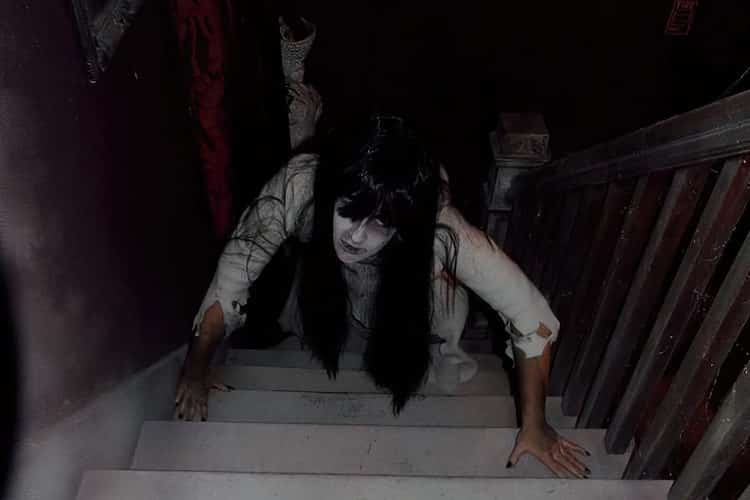
Creating a Broader Awareness of Diversity
Go see other haunts. What does their cast look like? Do you have the opportunity to have your cast look that way? And that’s, people of all shapes, sizes, colors. We become familiar with what’s around us. Whatever you’re around is what you’re used to. So if you aren’t used to people of other races, other genders, other sexual orientations, maybe you need to get more comfortable with that.
Final Thoughts From Philip
We’re shooting for a broader awareness overall, which leads to us being able to create more welcoming environments, which then creates a more diverse team to help us get even more welcoming, which then shows the people that we’re trying to have come experience the show, like our customers, “you belong here, you all belong here because our team is diverse and our thinking is diverse.” That starts with awareness. You’re aware of it first, then you welcome. You build welcoming messages and you build a team, and then you hopefully attract a better customer base because you’re more diverse.
Get your copy of Not Afraid to Slay: Women of the Haunt Industry by Jan Knuth with Candi S. Cross here: https://amzn.to/3fpsH72